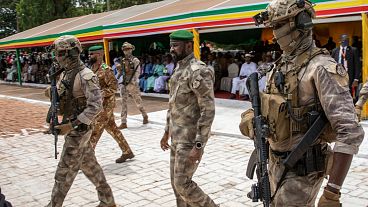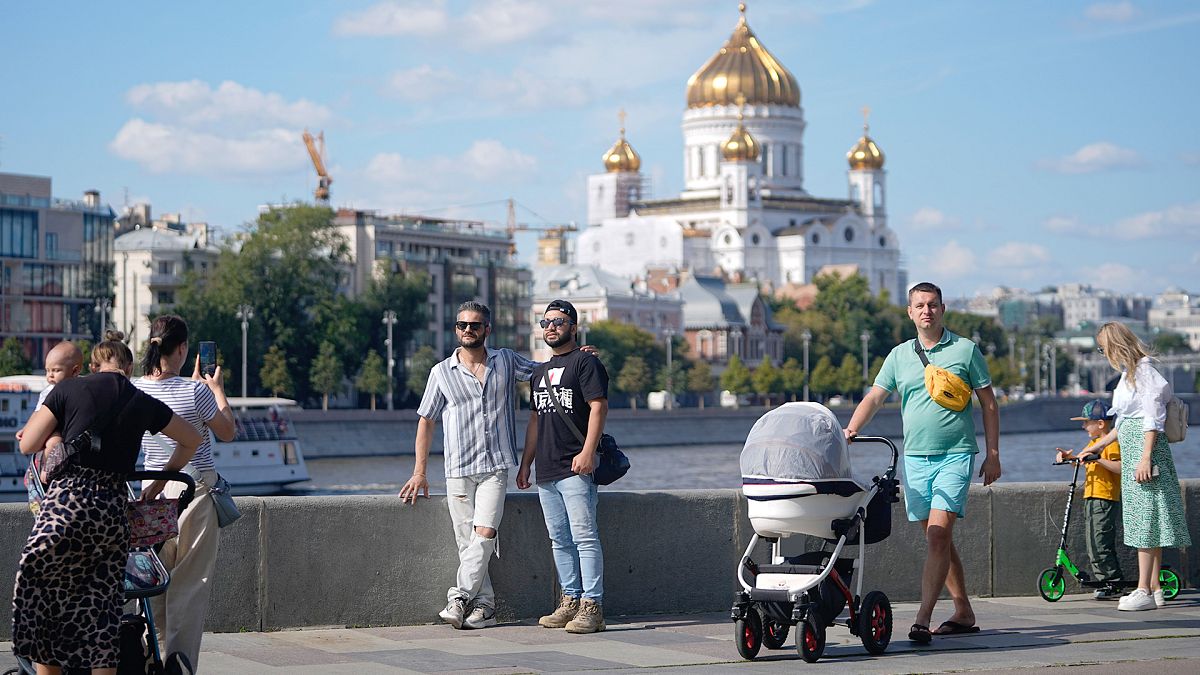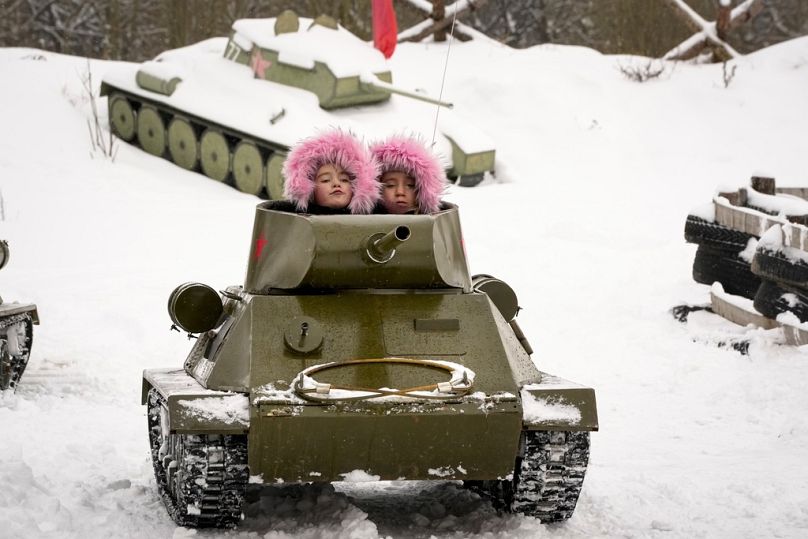In July, Putin's spokesman Dmitry Peskov said the country's low birth rate was "catastrophic" for Russia's future.
Russia's birth rate is at its lowest since 1999 with the number of live births falling under 100,000 in June, causing concern in Moscow over what has been described as a severe population downswing.
From January to June of 2024, 599,600 children were both in Russia — 16,000 less than the same period in 2023, according to data published by Russia's governmental statistic agency Rosstat.
Over the same period, Russia's population decline accelerated by 18%, with 49,000 more deaths recorded in 2024 than the year before, likely due to the frontline casualties caused by Russia's ongoing full-scale invasion of Ukraine.
The head of the State Duma Committee for Family Protection, Nina Ostanina, told state RIA news agency that a "special demographic operation" was needed in Russia to stimulate the birth rate — a reference to Moscow's war in the neighbouring country.
In July, President Vladimir Putin's spokesman, Dmitry Peskov, called the low birth rate "catastrophic", adding that reviving the birth rate was one of Russia's "top priorities".
Russia's ongoing population problem
Russia's population has been on the decline since the 1990s with brief periods of recovery. In 1999, the birth rate sat at 1.6 — lower than during World War II.
Since coming into office, Putin has often discussed improving the birth rate as one of his priorities. The Kremlin has largely idealised young motherhood, which Putin — who likes to use traditionalist talking points as a way of hitting back at the West — called in 2020 part of Russia's "historic duty".
At the time, Moscow introduced a series of measures in line with its policy, including expanding paid childcare for low-income families, introducing tax breaks for larger families, and promising to create more nursery places.
Since then, Russia has launched its full-scale invasion of Ukraine, exacerbating its population problem by forcing an exodus of people — including those disagreeing with Moscow's policies as well as young men dodging conscription — with very few coming in.
Alex Kokcharov, a country risk analyst for Eurasia, said that despite the Russian government offering financial incentives, the fertility rate in Russia has continued to slide in the face of its ongoing war.
"With the war continuing in its third year, and now directly impacting Russian territory, money is not the only factor. With the security situation in border regions uncertain, families are delaying decisions on having children," Kokcharov told Euronews.
An Atlantic Council report said that the continuation of the war in Ukraine could have profound consequences on Russia's population, eventually leading to a smaller pool of Russians.
The report added that the amount of young Russians dying in the war against Ukraine could change the outlook of the country's future labour market.
In June, Russia's Deputy Prime Minister Dmitry Chernyshenko warned local media that Russia could face a shortage of up to 2.4 million workers by 2030 if its population decline did not improve, although he did not openly link this to Moscow's war.
Russia's birth rate is approximately the same as Germany's, which has a middling birth rate in Europe, according to Eurostat. Spain, with 1.16, has one of the worst birth rates in Europe, with France having one of the best at 1.79.














